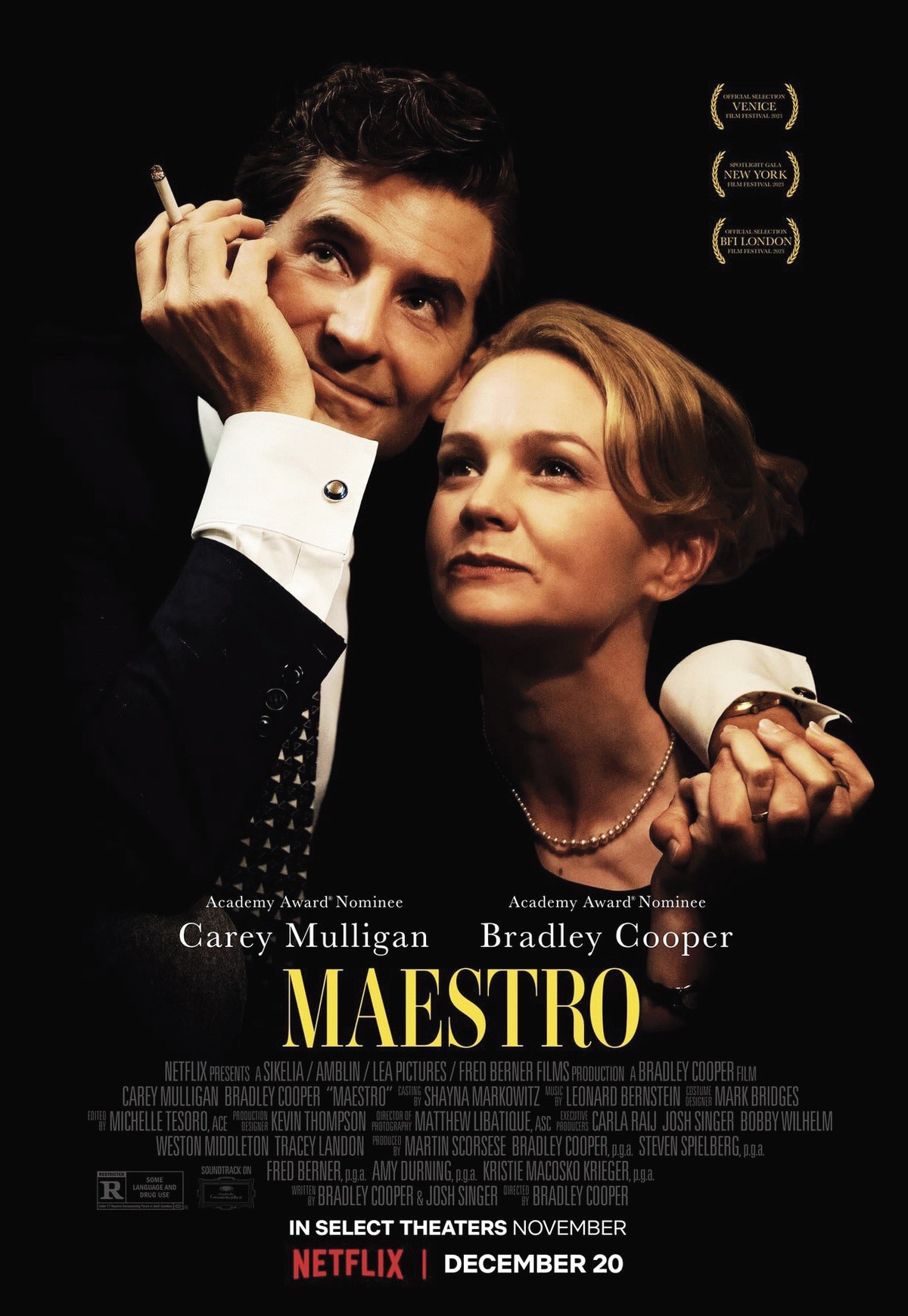Due to the massive winter storm and deep freeze, it is unfortunate to say that I was not able to go out to the theaters of late. My plan was to present to you another group of films, now that Oscar season is in full swing. A silver lining has come in the form of various steaming services. Your television can be your cinema. This is especially so if your screen is big enough to resemble a theater. Who needs the multiplex? Here are a couple of films for your consideration.

Netflix’s “Maestro” is the second film from multi-hyphenate Bradley Cooper. The concept behind the film has been bounced around from different directors and studios throughout the years. A list of executive producers reads like a who’s who of Hollywood: Steven Speilberg and Martin Scorsese. But I can’t help but wonder what this film would have been like if they had taken the reins. Don’t get me wrong; Cooper is an exceptional filmmaker. From the first shot to the last, however, he doesn’t have a handle on what exactly is this about. Given the title, one would suspect that this is about the life and accomplishments of Leonard Bernstein. Unless you have seen any trailers or promotional footage, you may be unaware that this is not the case. Carey Mulligan has the lion’s share of the runtime, for a film with a title like this. It is unclear if this was a writing decision or that the Bernstein heirs wanted this. If so, these are some disjointed choices.
One feature that came to mind was 2004’s De-lovely, a film about the life of Cole Porter and his wife Linda. There, the focus was on Porter’s songwriting, weaving them in as it was a musical. However, that was balanced with a strong story about him and Linda, giving her more and more agency throughout.
In “Maestro,” there was an attempt to do that; one sequence plays like a surreal dream with dancing suitors Lenny and Dick Hart. But like so many artistic choices, none of it adds up. Why shoot in black and white in the beginning with so many swift transitions, breezing through his burgeoning career? What was the point of the underwater scene, besides how pretty it looked? Why film an argument from a middle distance, where we are forced to look at parade floats instead of characters? Forget about a distracting prosthetic nose; there is too many “look at me” directing moments to ever notice it.
Not to be outdone, Amazon Prime’s “Saltburn” asks a simple question. What if The Fall of The House of Usher and The Talented Mr. Ripley had a baby, and it was fed acid? We are introduced to Oliver as he begins his time at Oxford. Barry Keoghan continues his foray into disturbed young men, lusting after the handsome and popular Felix played by Jacob Elordi. His effortless charm makes us understand why Oliver is so infatuated. After their first year, Fleix invites Oliver to stay with him and his family at their titular estate for the summer. What ensues is a series of pastoral scenes punctuated by the most sour and catty dialog this side of Bret Easton Ellis.
Make no mistake, writer-director Emerald Fennell has contempt for these people. In her second feature after Promising Young Female, she has shown herself to be a caustic wit. Hers is a mix of biting satire and campy drama that pulls back the gilded trappings of society to see the raw id at the center of human nature. Plus, this has the better of the two Carey Mulligan performances, if only because she bought the biggest laughs from me. Just be warned that you can’t unsee some rather graphic scenes on display. The final song used will be forever ruined for me now, but I must say; thanks Emerald for that.




